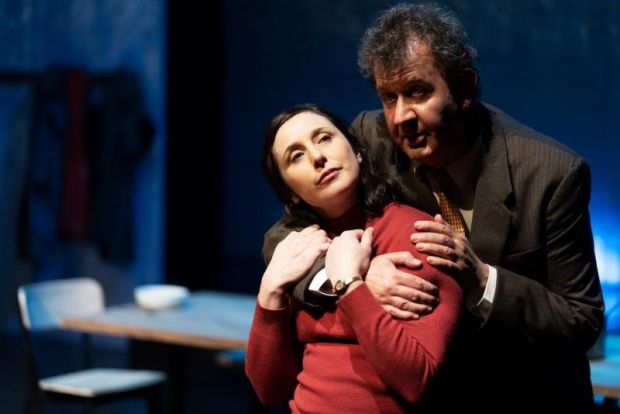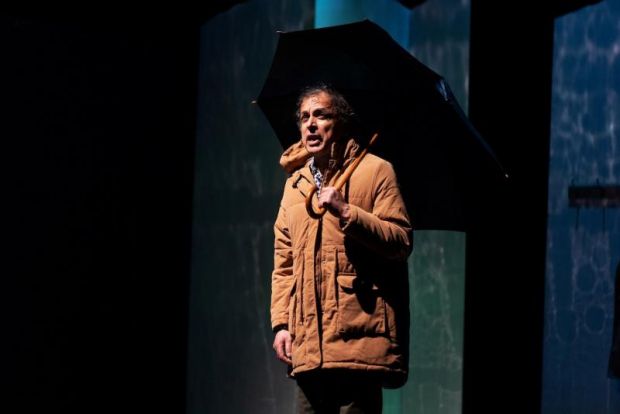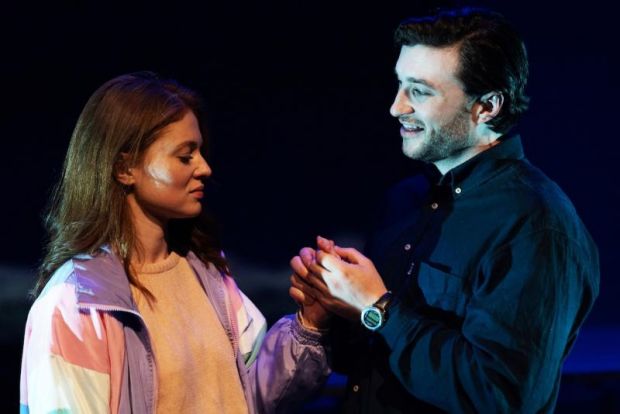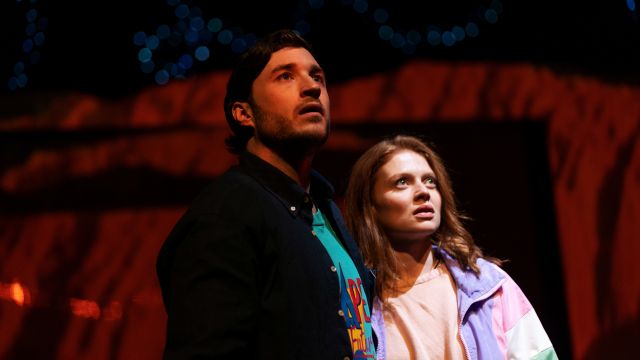When the Rain Stops Falling
Andrew Bovell’s 2008 play weaves together past, present and future, embodying his twin themes of the familial sins of the fathers and the ecological sins of all of us upon this our Earth. If the latter sounds portentous, it is a subtle, allusive presence in the family saga. Each is almost an allegory for the other. The story, beginning in 2039, and travelling backward to 1959 and points in between, across three generations, echoing the Old Testament, in which the Lord our God is a jealous God, visiting the iniquity of the fathers upon the sons to the third and fourth generation’.
‘God’ or not, what is powerfully dramatised here is the psychological cause and effect of secrets and lies, actions or omissions, things unspoken, abandonment, absent fathers, and the inability to love or to be loved. The sins that are visited upon the sons – and daughters – may have their crippling effect simply by remaining a mystery – an awareness, a dread, that, in the past, something very wrong happened.

In 2039, Gabriel York (Francis Greenslade), an isolate in a derelict apartment, waits in a perpetually raining, flooded Alice Springs to meet his estranged son Andrew (Darcy Kent). A fish drops from the sky. Gabriel has no explanation for that, or answers to the questions he knows Andrew will ask. In 1959, in a dismal London flat, still hopeful Elizabeth Law (Esther Van Doornum) waits for her husband Henry Law (also Mr Greenslade) to come home through the rain. Their baby son will grow up to be Gabriel Law and go to Australia in 1988 in search of the father who disappeared… and Gabriel will fall in love with roadhouse waitress Gabrielle York (Lucy Chaix)… and have a son Gabriel York… The play segues from time period to time period, in no logical, linear structure, its twenty-two scenes demonstrating the inextricability of past and present, action and reaction, showing us for instance that sweet 1959 Elizabeth Law will become embittered alcoholic old Elizabeth Law (Margaret Mills) in 1988… that old Gabrielle (Heather Bolton), succumbing to dementia, has found find a good man, Joe Ryan (Alex Pinder), who loves her without knowing her past… At times, different iterations of a character are on stage together – and indeed there are non-naturalistic but perfectly clear scenes in which all the characters are on stage at once, all at a long dining table, eating fish soup, all seemingly unaware of this magical, metaphoric set piece.

Greg Clarke’s simple but suggestive set allows for such touches, and Darrin Verhagen’s sound (with its brilliant rain effect, particularly in the play’s final moment), and Clare Springett’s characteristically expressionist lighting, all bring the sprawling elements together.
The performances by this cast are excellent, each convincing us of the humanity and melancholy of their characters, despite at times heightened or poetic dialogue, and the references and catchphrases that persist unknowingly across generations. Director Briony Dunn elicits detailed, complex performances, but there is a somewhat lugubrious pace to things, which is just a touch enervating: the play’s running time is always cited as two hours; here we have an extra twenty minutes.
In addition, the multiple layers, generational connections and non-linear structure do have the effect of somewhat distracting us from the characters emotions. We are held and curious, but is that us keeping up and working it out, or is it our engagement with the tale? It is a puzzle play that takes a half to possibly two-thirds of its running time for us to get a solid purchase on who is who – puzzles that are not helped by the physical and behavioural disparities between ‘old’ and ‘new’ characters (a casting issue) and the lack of attention to period in Betty Auhl’s costumes.

It is – or seems to be – very difficult to write a play with an ‘environmental’ theme – without, that is, sounding like a preachy pamphlet. Here, Mr Bovell makes it work, even if the rain stopping falling is almost subsumed by the family tragedies. =The play has been produced several times in Australia, and in the US and UK, to well-deserved acclaim. It is a play that needs but repays close, sustained attention. It is as much a play of ideas as of character. It has the great achievement of putting the past on stage rather than it’s being merely a subject the characters discuss. Indeed, the characters not knowing the past makes the drama all the more poignant. The subject is dark, but there is humour, there is warmth and, at the end, the possibility of hope. If we can’t fix the legacy of the past, we are doomed, but if we know it and confront it, why can’t we?
Michael Brindley
Photographer: Lachlan Woods
You can buy a script of When The Rain Stops Falling, or read an excerpt from the play at Stage Whispers Books. Click here.
Subscribe to our E-Newsletter, buy our latest print edition or find a Performing Arts book at Book Nook.

